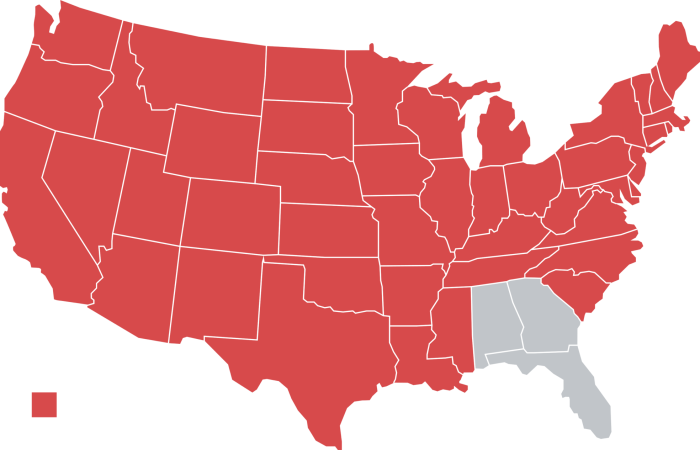
by putting
dependable
power
Watch The Video
Does America Have a Grid reliability Problem?
In a world increasingly facing power grid reliability challenges, the need for consistent and dependable power sources never has been more critical.
Our latest video, “Dependable Power First,” highlights the looming threats to our power grid and the consequences of frequent power outages – from hurting businesses and putting jobs at risk to the annual $150 billion estimated cost to our economy.
This isn’t just about keeping the lights on; it’s about ensuring our businesses, livelihoods and economy can continue to thrive. Let’s keep America powered by putting dependable power first.
STAY INFORMED
Is your State at risk?
These 45 states have been identified by NERC (North American Electric Reliability Corporation) and/or their respective regional grid operators as having reliability risks, and some of them have recently experienced rolling blackouts.

“[Electricity is] seven percent of the economy, but it’s the first seven percent because without it, nothing else works.”
Jim Robb, President and CEO, North American Electric Reliability Corporation (NERC)
WHAT YOU NEED TO KNOW
WHAT IS THE PROBLEM?
America's electrical grid is facing serious reliability challenges that could lead to rolling blackouts during times of high electricity demand, especially during extreme cold or hot weather. Power outages disrupt not just consumers' lives but also businesses' ability to function.
WHY IS THIS HAPPENING?
One reason for this problem is that dependable sources of electricity, like coal plants, are being shut down and replaced with sources of electricity that are less dependable. Federal and state policies, in particular, are driving these retirements at a dangerous pace.
WHAT CAN BE DONE?
The possibility of blackouts will get worse unless steps are taken to keep dependable sources of electricity from retiring. Sensible federal and state policies, as well as changes to rules that govern electricity markets, are needed to stop this rush to eliminate dependable power sources from our grid.
BUT WHAT ELSE CAN WE DO?
Each source of electricity has its own advantages. That’s why our grid needs a healthy mix of resources. Some people call this an “all-the-above” strategy. A healthy mix includes coal, natural gas, nuclear power, and renewable energy. When one of these resources is too expensive or is unable to generate power, the others can step up by increasing their output. All the above means a more reliable and less expensive supply of electricity.
“We are retiring dispatchable generating resources at a pace and in an amount that is too fast and far too great, and it is threatening our ability to keep the lights on.”
Mark Christie, Commissioner, Federal Energy Regulatory Commission (FERC)
$150,000,000,000
“As we move forward, we need to know that when you put a solar panel or a wind turbine up, it’s not the same as a thermal resource.”
Jim Matheson, CEO, National Rural Electric Cooperative Association
ABOUT
Dependable Power First is an initiative to draw attention to the pressing issue of power grid reliability in the United States. As the weather intensifies, experts predict that two-thirds of the country may experience power outages, primarily due to the rapid retirement of dependable electricity sources like coal. This leaves us vulnerable to electricity shortages during times of high electricity demand.
We call for a balanced and sensible energy strategy that ensures a dependable, affordable, and resilient electricity supply for all Americans. We support all electricity resources, especially coal, that can provide affordable, dependable, and resilient supplies of power.
The well-being of every American and our economic success are at stake. Let’s keep America powered by prioritizing dependable power first.
“We strongly encourage an approach to policymaking that expressly evaluates reliability impacts in the development phase of policy, not after the fact.”